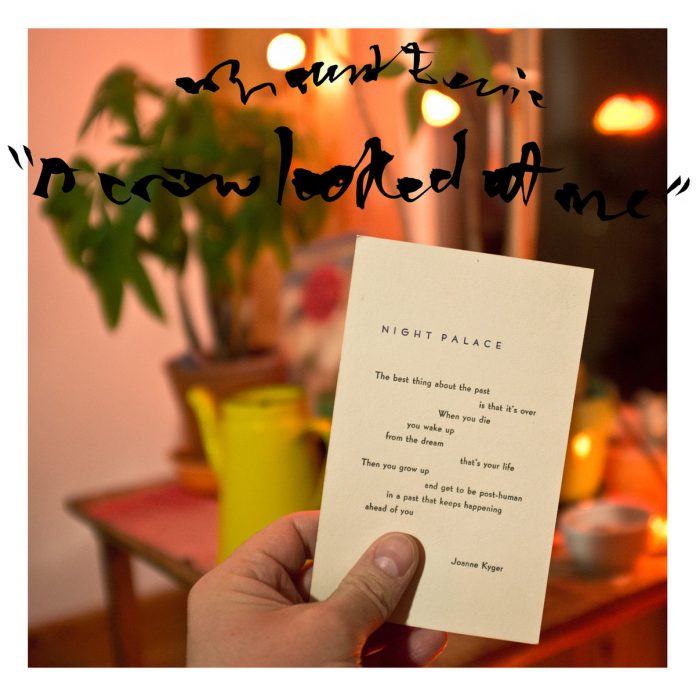A Crow Looked at Me is the eighth release by Mount Eerie, Washington songwriter Phil Elverum’s solo project. It was written as a reaction to the death of Elverum’s wife, who passed away from pancreatic cancer. Understandably, the record reflects only grief.
As is the case, I imagine, with the loss of a loved one, A Crow Looked at Me doesn’t have much of a narrative. The stories which Elverum does tell us (or himself) in individual tracks are fragmented at best. Aside from the opening track, in which Elverum contextualizes the record by asserting that “death is real, someone’s there and then they’re not and it’s not for singing about. It’s not for making into art,” the content of the record mirrors the totality of Elverum’s grief. It’s kind of lost.
He opens the front door and is reminded of his wife; takes out the trash, brushes his teeth, goes grocery shopping, and is reminded of his wife. There are no real narrative arcs to the songs in A Crow Looked at Me. All of this is highlighted by Elverum’s practice of addressing his wife while singing. In “Ravens,” Elverum drifts from one task to another, one memory to another (he briefly mentions having given his wife’s clothes away, “I’m sorry,” he sings, “I had to”), and finds no real answers in any of them. So he continues, letting grief wash over him. In this, Elverum’s stoicism (or numbness) lends his writing a stark realism that constitutes an unparalleled blow to the listener.
“Forest Fire” places Elverum’s grief against the dual backdrops of having to go through the rote, custodial work of disposing of his wife’s belongings in the wake of her death, and the destruction brought about by a forest fire as it grows, unceasing and dumb. But what’s noteworthy is that Elverum either refuses or is unable to philosophize. His wife’s death is not some event that he needs to reconcile with himself. Elverum is unflinchingly candid: “When I’m kneeling in the heat throwing out your underwear the devastation is not natural or good. You do belong here. I reject nature, I disagree.”
Throughout the record, Elverum’s delivery is such that every word has more or less the same intonation. Through minimalist but amorphous instrumentals (guitar, percussion sans snare, sparse piano), Elverum (perhaps unwittingly) forces the listener to consciously focus on his lyricism. Understandably, none of the tracks on the record employ hooks. But for their lack of hooks or sometimes a chorus, each track remains distinct despite their shared thematic content.
It feels wrong to say that Elverum has captured his own grief with an enviable clarity given that it is undoubtedly a product of his submersion in it. Grief must have appeared to Elverum as the only emotion within his reach tangible enough to knead and repurpose into a coherent body of work (and, in its reflection of grief’s incoherence, it certainly is). And as wrong as it might feel to say so, the observation stands.
I would, however, amend it by adding that the precision to which Elverum has distilled his grief only speaks in support of the overwhelming abundance of love he has for his wife, distilled just as clearly in despair.


